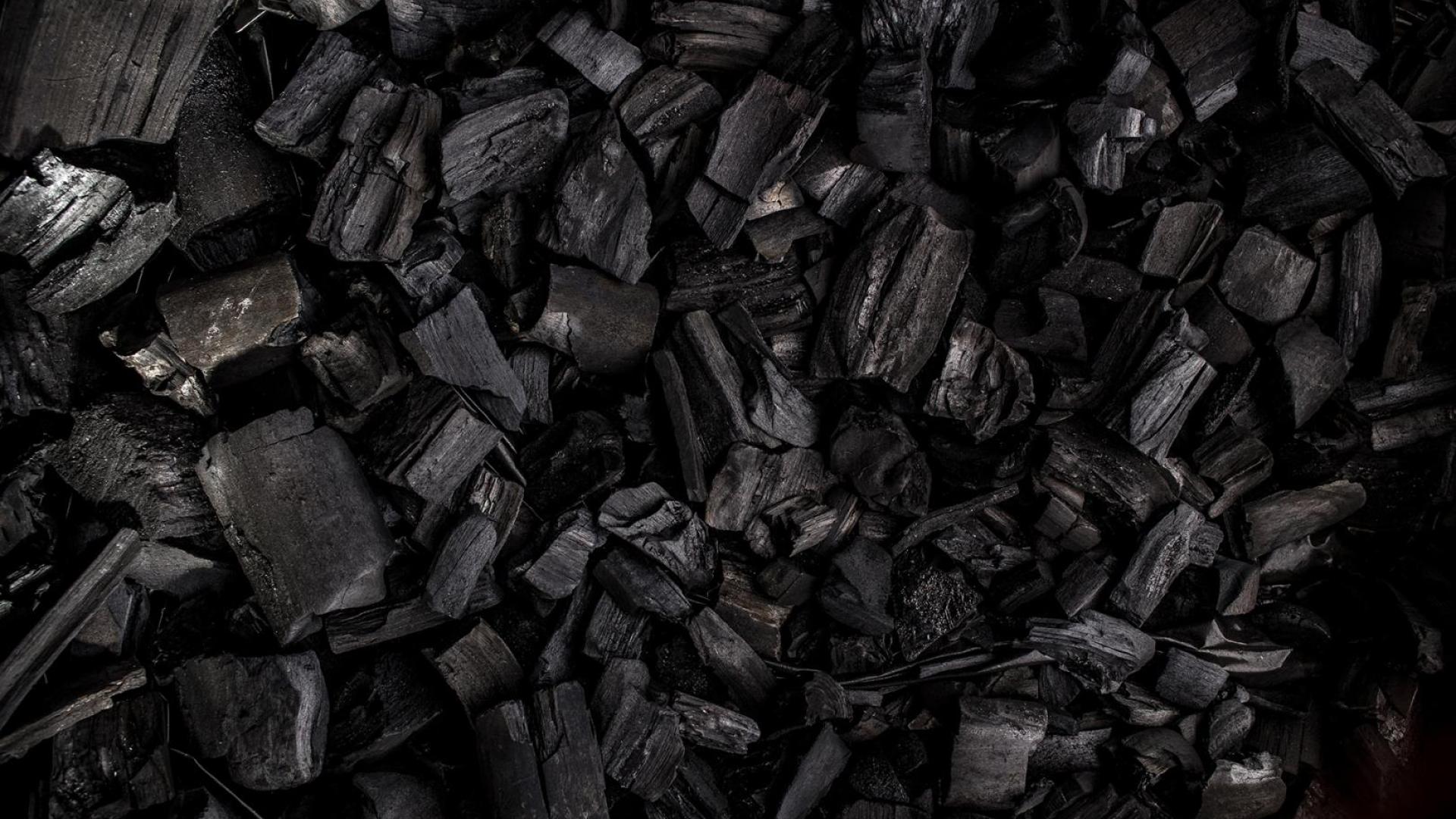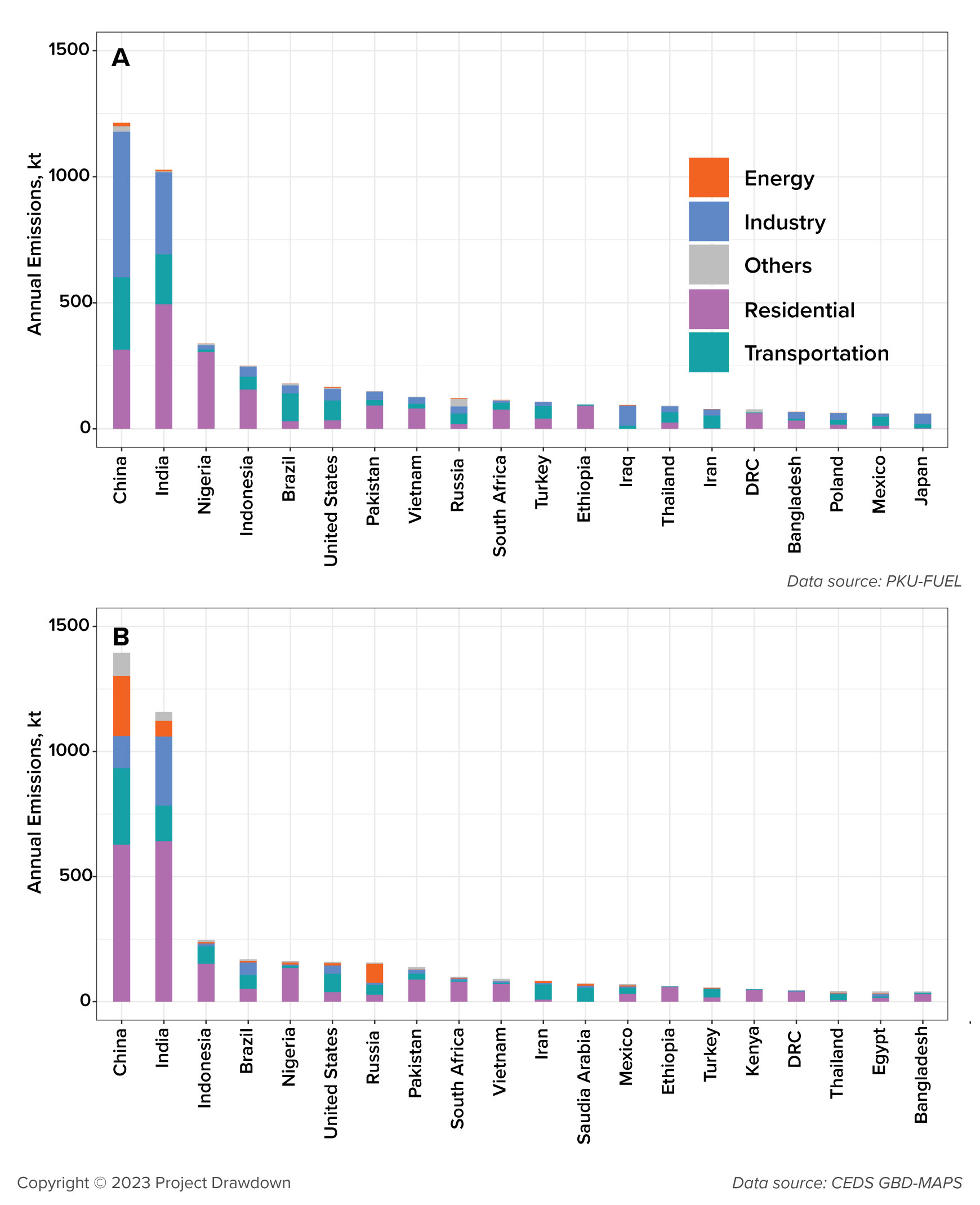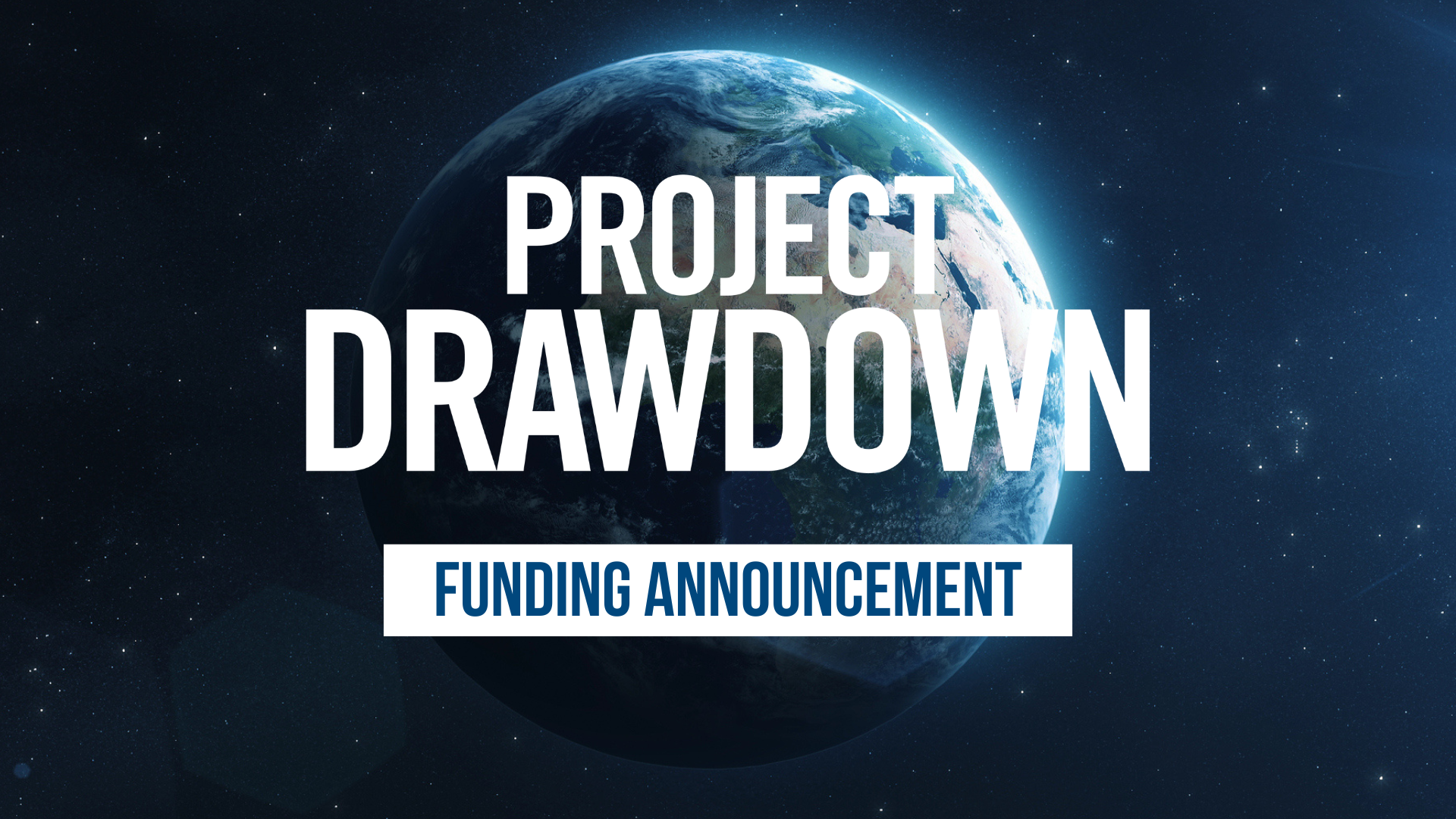“Globally, we are nowhere near reaching the black carbon emissions targets set by the Intergovernmental Panel on Climate Change,” says Project Drawdown scientist and report author Yusuf Jameel, PhD. “Fortunately, all of the solutions we need to get back on track are already at our fingertips, they just need to be strategically deployed. It’s imperative that country leaders and funders start to take black carbon seriously and incorporate the solutions identified in this report into their climate action plans. Our planet and the millions of lives at risk each year can’t wait.”
Black carbon hotspots by location and sector
By analyzing two of the most comprehensive datasets on global greenhouse gas emissions, the researchers present country- and region-level black carbon trends across major sectors. They found that the residential sector was the largest source of black carbon accounting for 48% of global emissions, largely driven by the 2.6 billion people, mostly in low- and middle-income countries, who rely on solid fuels such as wood, charcoal, dung, or coal for heating and cooking.
“Dirty air kills more people each year than all lives lost of cancer, smoking, and war combined,” says Project Drawdown scientist and report author Paul West, PhD. “Switching to cleaner cooking fuels improves household air quality, which improves people’s hearts and lungs, and cuts out the time required to gather fuelwood.”
Transportation – specifically diesel-based vehicles and ships – and industry – through inefficient iron and steel production using brick kilns, boilers, and coke ovens – were the next highest contributors at 24% and 12%, respectively.
At the country level, the researchers found that China and India are by far the highest emitters of black carbon contributing to one-third of global emissions, followed by Brazil, Indonesia, and Nigeria. Together, these five countries produce half of global black carbon emissions each year, however, the relative contributions of various high-emitting sectors differed across regions.





